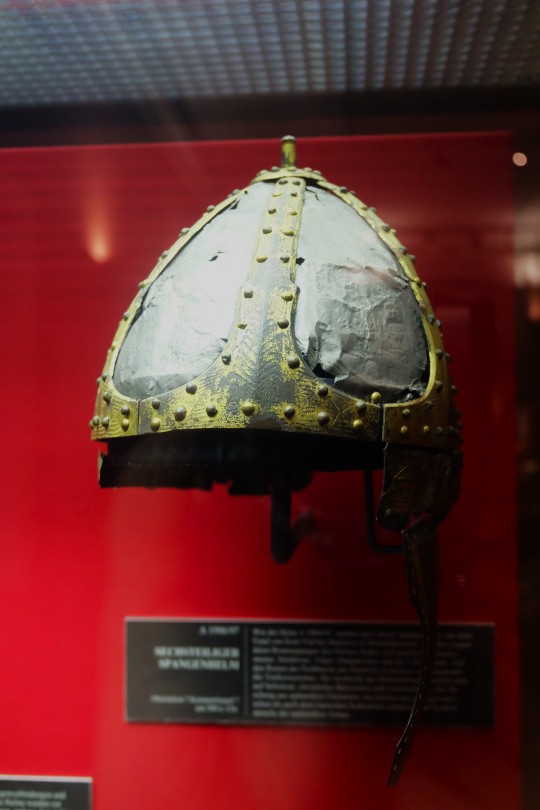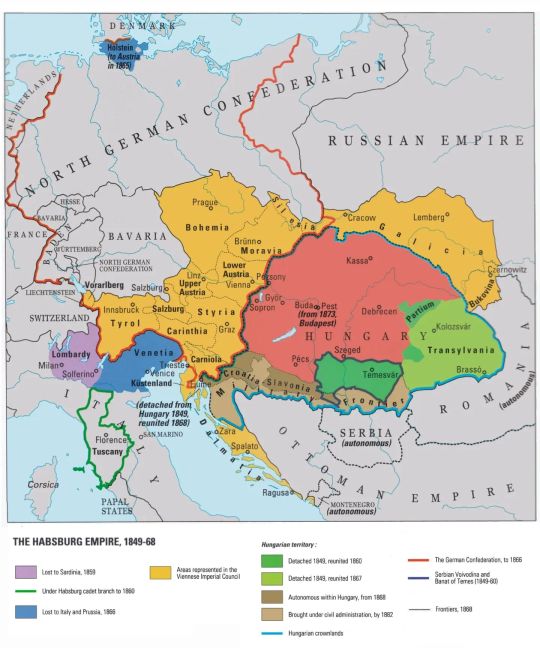#Croatian military
Explore tagged Tumblr posts
Text
youtube
#youtube#militarytraining#Polish military#Military technology#Military tactics#Military training#Army training#Military firepower#Croatian military#Target practice#Live fire exercise#Weapons training#Military drills#Military operation#Military combat#Military capabilities#Military exercise#Defense training#Military demonstration#Military forces#Combat training#Military exercises#Polish army#Military comparison#Firepower#Weaponry#Artillery exercise#Army artillery
2 notes
·
View notes
Text

A Croatian Air Force Antonov An-32 transport climbing out of Florennes Airbase
44 notes
·
View notes
Text
if your country is a part of NATO then joining your country's military is fucking psychotic imo. like you could just get sent to die whenever and wherever the americans want you to die in the name of profit. genuinely insane to put yourself in that situation
#some time ago a croatian soldier died in Afghanistan(?) on American orders and when I saw those news I was so confused like#what tje fuck was he doing there. I couldn't even comprehend that there's croatian soldiers in Afghanistan i literally thought the dude went#there on his own unrelated to the military#then realized we're in NATO and USA wars are now apparently our wars#i don't really care about the cro soldier it's just an insane situation
123 notes
·
View notes
Text
PSA:
DO NOT let your children read marmonts memoirs. Their brain will never be at ease ever again ‼️‼️‼️‼️‼️
#after reading one book out of NINE#my brain has been taken over#i just cant stop thinging about stuff he described ONCE#like im just laying in bed...and#im thinking about??#pavle tomić???#What the hell#the random ass croatian military frontier general he mentioned once#or im in the shower going...#“hmmm i sure wonder how Vincenzo Dandolos grandfather looked”#LIKE WHAT#ok rant over#auguste de marmont#marmont#auguste marmont#history memes#marmonts memoirs
11 notes
·
View notes
Text


















Because I'm back from the SAIB 2024 (International Bagotville Airshow 2024) I'm still in the mood for some airshows... and For some reason google thought of sending me these pics in my news Alert... Even though it's nothing new, I had never seen these pics before of Goran from the Croatian Air Force flight.
Goran + Aircrafts = Perfection!
P.S. Been away since Thursday... I did not disappear! Had to rush mom to the ER... Let say, the first week of Chemo is rough for her...
9 notes
·
View notes
Text

Military barracks in Zagreb, Croatia
Croatian vintage postcard
#croatia#zagreb#briefkaart#photography#vintage#tarjeta#postkaart#postal#photo#barracks#postcard#historic#carte postale#military#ephemera#sepia#ansichtskarte#postkarte#croatian
3 notes
·
View notes
Text


Spangenhelm Helmet from Dalmatia, Croatia dated to around 500 CE on display at the Weltmuseum in Vienna, Austria
Photographs taken by myself 2022
#armour#art#fashion#military history#croatia#croatian#late antiquity#migration period#6th century#archaeology#eastern roman empire#byzantine empire#weltmuseum#vienna#barbucomedie
12 notes
·
View notes
Text

Croatian Army Soldier during a military advisory team training exercise at the Joint Multinational Readiness Center in Hohenfels, Germany.
The U.S. Army photo by Spc. Tristan Bolden (2012)
5 notes
·
View notes
Text

Special military police of the Croatian Armed Forces (MORH) during tactical demonstrations for their 20th anniversary at the Petar Zrinski Military Academy in Zagreb.
J. Kopi/MORH, August 24, 2011
76 notes
·
View notes
Text
The Croatian lads had a dream and a E50 voucher for the military surplus shop

792 notes
·
View notes
Photo

The Habsburg monarchy from 1849 to 1868
“Atlas of European history”, Times Books, 1994
via cartesdhistoire
Having defeated the revolution of 1848 in Hungary, Vienna made substantial changes to Hungarian territory: Transylvania was detached, Croatia was enlarged and the voivodship of Serbia and the Banat of Tamiš was created (November 1849).
This situation continued until the Austrian defeats in Italy in 1859 and against Prussia in 1866. After the abolition of the voivodship of Serbia and the Banat in 1860, Emperor Franz Joseph restored the autonomy of Hungary through the Compromise of 1867 (“Österreichisch-Ungarischer Ausgleich”). Hungary obtained what it demanded in 1848: a government responsible to Parliament and the management of its internal affairs, to the great dismay of the non-Magyar populations who were therefore subject to the centralizing model of Budapest.
The Compromise consists of the Constitutional Statute concerning Austria and its dependencies and the Constitutional Pact concluded between Franz Joseph and the Hungarian Nation. Indeed, the Hungarians have always seen their integration into the Habsburg monarchy as a voluntary act and not as a subjection.
The “Ausgleich” was completed in November 1868 by a Hungarian-Croatian compromise (“Nagoda”) negotiated between Budapest and the Zagreb Diet. Croatia-Slavonia now forms an autonomous kingdom within Hungary with its own administration and its Diet (“Sabor”).
Hungary recovered Transylvania in 1867 and the military borders were placed under civil administration between 1851 and 1881.
Hungary (Transleithania) brings together 20,886,000 inhabitants in a territory which is generally that of the Crown of Saint-Etienne. This is also its official name: “Country of the Crown of Saint-Étienne”. Austria (Cisleithania) is the rest of the Habsburg territory, officially named "Kingdoms and countries represented in the Imperial Diet", a more disparate group of 28,275,000 inhabitants - including the Countries of the Crown of Saint Wenceslas: Bohemia, Moravia, Silesia.
112 notes
·
View notes
Text
youtube
#youtube#militarytraining#International cooperation#Croatian soldiers#NATO#Polish soldiers#Tactical maneuvers#Military technology#War games#Missile defense#Military training#Air defense systems.#Army training#Defense#Military drills#Air defense#Live fire exercise#American soldiers#Military exercise#Anti-air missiles#Armed forces#Soldier training
0 notes
Text

Croatian Air Force / MiG-21 / Zagreb Airport Croatia
#Croatian Air Force#Mikoyan-Gurevich#MiG-21#Fishbed#Military aviation#Fighter aircraft#interceptor#aviation photography#jet#plane
60 notes
·
View notes
Text
Adam Labus

The Eching and Freising shooting occurred on Tuesday, February 19, 2002, at the former workplace and school of 22-year-old Adam Labus. He killed three people and seriously injured another.
Course of Events.
In the morning, Labus, who was of Polish origin, took a taxi to the company in Eching (Freising district) in military camouflage clothing, which had recently fired him and where he had worked for one and a half years in the bottling department until he was allegedly fired for laziness. Once there, he killed the 38-year-old plant manager with a Yugoslavian-made Tokarev TT-33 self-loading pistol and a gas pistol and shot a 40-year-old foreman , who died of his injuries shortly afterwards.
He then drove in the same taxi to the business school in Freising , which he had attended, killed the headmaster and seriously injured a religion teacher. In the process, he set off pipe bombs. Finally, Labus killed himself with pipe bombs, a hand grenade and a shot to the head.
The police were unable to recover the body because they suspected that Labus' backpack contained additional weapons or explosives . The body was eventually removed from the school by a bomb disposal squad.
Motive.
Adam Labus, born in Zabrze in 1979 , moved with his family from Poland to Germany in 1988. He found it difficult to adapt to his new surroundings. He repeatedly attracted attention by stealing bicycles and was often in trouble with the police. At school, Labus was considered rebellious , cheeky and a bad student. Years later, teachers remembered Labus's five-word comment on his impending expulsion from business school. He threatened his colleagues: "I'll shoot you all." After his release from school in 1995, Labus underwent psychiatric treatment once; he had escaped from the Munich clinic at the time. He later took part in a rehabilitation project on the North Sea in Denmark . Labus, already wearing camouflage clothing at the time, had attempted to rob a gas station Labus began collecting weapons and joined the German army . However, he was released early because he had stolen medication.
Investigators assumed that the motive was revenge for a dismissal that had been handed down just a few days before the crime. The shooter was also being investigated for robbery and fraud.
Due to his appearance and outfit, the Erding police could not initially rule out that Labus had sympathized with the neo-Nazi scene; the 22-year-old's right-wing extremist views were obvious. However, the Upper Bavaria Police Headquarters stated that they had no evidence of right-wing extremist activity on the part of the perpetrator. The Munich tabloid newspaper “tz” printed a letter signed “Heil Hitler” that Labus is said to have sent to a friend in October 1996.
Amok researcher Lothar Adler, medical director of the Ecumenical Hainich Clinic in Mühlhausen, diagnosed it as typical of an impulsive person who is tired of life and who is "psychosocially isolated and failed". The fact that the vengeful man not only killed his former employer, but also wanted to punish the teaching staff years after leaving school, is not surprising to the expert: "School is a time of hurt for many people. So the school becomes a place of attack." The police also assumed this motive in the end, "everything looks like a campaign of revenge against his supposed enemies," said an investigator. The police ruled out a right-wing extremist motive, which was initially assumed.
According to a report by Spiegel Online, Labus wanted to register as a mercenary in Kosovo a few years ago , but he was sent back at the Croatian border, intercepted by soldiers.
13 notes
·
View notes
Text
"As if Croatia and Serbia were competing, desperately wanting to match the level of vulgarity, hateful war-mongering and fascist inclinations of the other side, both sides began spreading rumors, half-lies and panic among their people. Who was to blame for all the troubles? It was crucial to find a culprit. Just as the Albanians were seemingly the chosen guilty party for most Serbian troubles (according to the Serbian media), in Croatia citizens of Serbian descent were quickly singled out as the main historical wrongdoers never to be trusted (according to the Croatian media).
The very fact that someone’s mother happened to be of Serbian ethnicity made that someone automatically suspicious. The second most hated group became the Yugoslav National Army, which the Croatian media portrayed as sympathetic to the Serbian cause (which would soon prove to be tragically true). Suddenly, the families of Yugoslav National Army officials became targets too. In shock, Goran and I realized that his family fulfilled both criteria for being suspicious: a) they were Serbs (since when? I was clueless, as usual) and b) Goran’s father used to be a military officer. I myself had a Serbian biological grandmother. (Would the fact that she had abandoned my mother at birth be an exonerating fact, I asked myself. Does nationalistic blood counting even care for details like this? And what about Jewishness? Was my mother right in advising me not to talk about it?)
I noticed that my Croatian friends and colleagues began speaking to me in a slightly changed tone. So did my Serbian friends. Over and over, I would hear the same exact sentence, spoken with a different accent: “You don’t understand this. You’re not from here.” In Croatia: “You don’t have a right to say anything. You’re not a pure Croat.” Pure? In Serbia: “What do you know about this? You’re not Serbian.” The same verdict would come out in myriad different versions: you don’t belong, you’re not “one of us,” you don’t have the right, you don’t understand, you don’t care about “us,” which side are you on anyway, what are you doing with “them,” why don’t you stay here where you belong, why don’t you go back to where you belong…? The noise was deafening. My mind was boiling.
One thing was clear: I was no longer trusted, in either of the two opposing camps, not even by my friends and colleagues. One of the most effective tactics in the production of hatred is abolishing all contact between opposing sides. This was exactly what both sides were frantically trying to achieve. You could not buy the papers from the other side anymore. You could not listen to the radio from the other side anymore. You could not catch TV programs from the other side anymore. The simple fact of my traveling between the two antagonistic cities was a subversion of the crucial idea of disrupted communication. Very often, in conversations on both sides, I would find myself screaming at the top of my lungs, trying to explain, explain, explain. But nobody was listening anymore.
The other technique in the production of war, an enterprise that was developing daily in front of our eyes, was the rehashing of old World War II wounds on both sides. More and more, the Serbian media began using the word “Ustaše” (the Croatian WWII fascists) to depict the whole Croatian people. The Croatian media, in turn, began using the word “Četnici” (the Serbian WWII monarchists who eventually sided with Hitler) to talk about the Serbian people. What was planted in the media at the time would later become reality. It would become a clear case of self-fulfilling prophecy. The old foes “Ustaše” and “Četnici” would soon rise and take up arms again. Sometimes it would literally be the same arms and the same uniforms that had been hidden away in dusty cellars since 1945.
In Serbia, Milošević, although nominally a Communist, aligned himself tightly with the Serbian Orthodox church. In horror, we were watching processions of Christian Orthodox priests carrying the bones of some important Serbian saint, on national television. The bones of Serbian civilians killed by the Croatian Ustashas during WWII were being diligently dug up from their long-forgotten graves. What was exactly the same on both sides was a harsh and merciless anti-Communism. And a newly discovered religious fever. What was most shocking, on both sides you could feel a deep, intense hatred for the land we had all been taught to love and cherish since our births, our shared country – Yugoslavia. Suddenly, the former loudest, flag-waving Yugoslav patriots became its main vilifiers.
And on both sides, WWII history was being frantically rewritten, picturing the winning anti-Fascists as the bad guys and their foes, the homegrown Fascists, as the good guys. What was inconceivable to me was the absolute readiness of people on both sides to accept the new “truths,” as if they had silently always believed them. The loudest, most enthusiastic revisionists proved to be the former members of the Communist Party. Old uniforms were being quickly replaced by new ones, both physically and metaphorically. As the world around us was crumbling down, my father’s take on things became especially valuable. He knew his history and his politics well. He was an active participant in, and a firsthand witness to a history that was repeating itself before our eyes."
- Mira Furlan, Love Me More Than Anything In the World
18 notes
·
View notes
Note
Where do you think Axel is from originally? I thought he sounded Eastern European. Anyway, I ship him with Sam, they’re cute!
Going by his surname, he's likely from the Balkans - Croatia as the most likely country (most people with his surname are from there), Serbia, Bosnia, Montenegro, Kosovo. Could be Russian in origin, too, but honestly when do we ever have a Croatian character around? I first thought Ukraine or Russia because people are going so hard on the Rocky parallels, and sure in the 1980's we could have the whole fighting your way out from behind the Iron Curtain, but that really doesn't go with Croatia in Axel's lifetime. I headcanon that his Dad was heavily involved in the Yugoslav Wars, came out with a "No Mercy" mindset, and is trying to push Axel into a military career - which he doesn't want. His Dad is letting him do karate at such a high level as it is combat training to him; Axel needs sponsor money to stay independent (but it's nice to have his father off his back in the meantime). There are academic scholarships in the EU, but it seems likely that he was pushed onto the sports track very young, he might not fully realise there are other ways to make your own life independently. All he knows is that he wants that and all his Dad is doing is trying to get him deployed somewhere. Still, with the stories he tells... Nope!
#None of this is text yet and might be utterly disproven but until then this is what I'm going with#axel kovacevic
10 notes
·
View notes